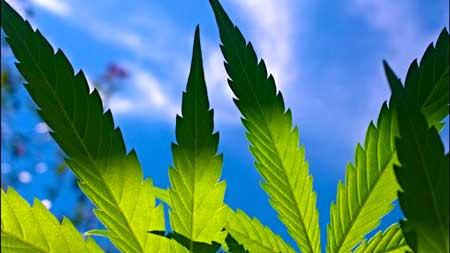Below is an article I found by a person called Cannatricks which I thought might be useful........
So I have done a lot of research over the years on compost teas and use a couple different types in our little nursery, but growing MJ has renewed my want to make things perfect and so I've been doing some experimentation and more reading. I couldn't find a good guide on here for Compost teas, I saw a few that showed the some recipes/techniques, but no one explaining the 'Why'; so I thought I would put up this little guide for peoples use.
Compost Tea-
Compost Tea is more or less a liquid version of your compost pile. This simple version is take your compost; throw it in a bucket filled with water for a week; strain; and Voila! you have compost tea. We will start with this, and work our way into better teas.
Why it works-
In organic gardening fore-thought and time are your biggest allies. There are not many 'instantaneous' nutrients that you can use to 'fix' your problems. You can't put raw sea kelp on your soil and expect it to work at all, this is because organic matter is a Compound, and nutrients that your plant can uptake are elements. There is a big rift in this site on the knowledge of how organics work (I think through the horrible marketing of these 'organic extracts') Organic gardening works because of a Microherd. The bacteria and fungi that live in your soil. These organisms work to break down these Organic Compounds into Simple Elementsso that they may be taken in by the plant directly. When you look at a box of organic nutrients and you see an NPK ratio, that is not instant, that is what is left after it is broken down through composting (whether in your soil, or in your teas)
Basically, bacteria break it down, fungi move it around and into the roots.
Cannabis and Compost Tea-
The ratio of bacteria - fungi is rather important as you go through your cycle of life. Most plants prefer one or the other, however Cannabis is a little strange being an annual it changes it's needs based on the period of it's life cycle. All plants do this to a point, but with the strains bred over time to take on more nutrients then it would in nature, Cannabis is a fickle girl to get the most out of her. Teas strong in Bacterial count are great for vegetation phase, and the stretch phase of flower, this is because Cannabis takes up WAY more nitrogen then any other nutrient and this uptake is needed during the growth of the leaves and stems. The bacteria are needed to keep breaking down your nitrogen so the plant can uptake it. After the stretch (which means start during as organics do take time) fungal teas are more useful. Some Fungi are known to allow plants to absorb more K (needed for flower!) and allow greater movement of nutrients throughout the soil. You don't need the breaking down from bacteria as much, as they have been releasing the P and K that the plant hasn't used.
So I have done a lot of research over the years on compost teas and use a couple different types in our little nursery, but growing MJ has renewed my want to make things perfect and so I've been doing some experimentation and more reading. I couldn't find a good guide on here for Compost teas, I saw a few that showed the some recipes/techniques, but no one explaining the 'Why'; so I thought I would put up this little guide for peoples use.
Compost Tea-
Compost Tea is more or less a liquid version of your compost pile. This simple version is take your compost; throw it in a bucket filled with water for a week; strain; and Voila! you have compost tea. We will start with this, and work our way into better teas.
Why it works-
In organic gardening fore-thought and time are your biggest allies. There are not many 'instantaneous' nutrients that you can use to 'fix' your problems. You can't put raw sea kelp on your soil and expect it to work at all, this is because organic matter is a Compound, and nutrients that your plant can uptake are elements. There is a big rift in this site on the knowledge of how organics work (I think through the horrible marketing of these 'organic extracts') Organic gardening works because of a Microherd. The bacteria and fungi that live in your soil. These organisms work to break down these Organic Compounds into Simple Elementsso that they may be taken in by the plant directly. When you look at a box of organic nutrients and you see an NPK ratio, that is not instant, that is what is left after it is broken down through composting (whether in your soil, or in your teas)
Basically, bacteria break it down, fungi move it around and into the roots.
Cannabis and Compost Tea-
The ratio of bacteria - fungi is rather important as you go through your cycle of life. Most plants prefer one or the other, however Cannabis is a little strange being an annual it changes it's needs based on the period of it's life cycle. All plants do this to a point, but with the strains bred over time to take on more nutrients then it would in nature, Cannabis is a fickle girl to get the most out of her. Teas strong in Bacterial count are great for vegetation phase, and the stretch phase of flower, this is because Cannabis takes up WAY more nitrogen then any other nutrient and this uptake is needed during the growth of the leaves and stems. The bacteria are needed to keep breaking down your nitrogen so the plant can uptake it. After the stretch (which means start during as organics do take time) fungal teas are more useful. Some Fungi are known to allow plants to absorb more K (needed for flower!) and allow greater movement of nutrients throughout the soil. You don't need the breaking down from bacteria as much, as they have been releasing the P and K that the plant hasn't used.




Comment